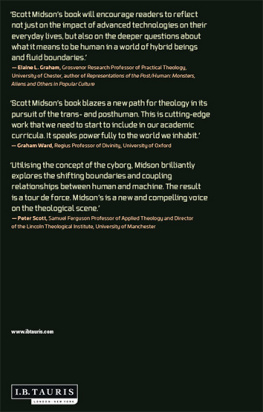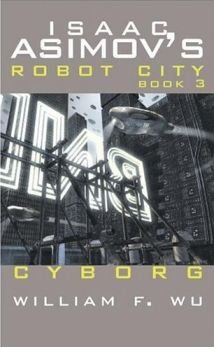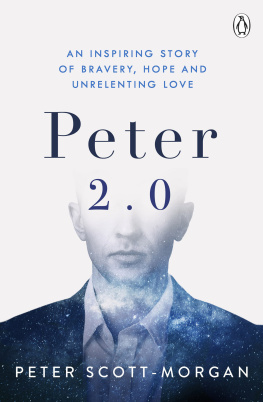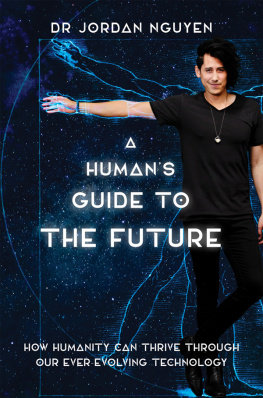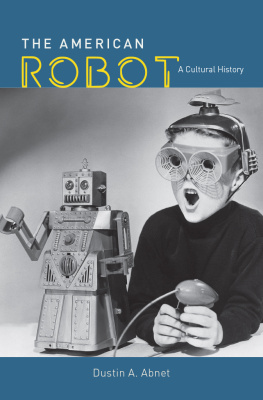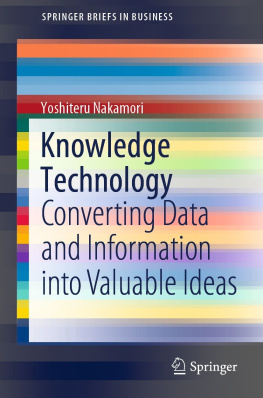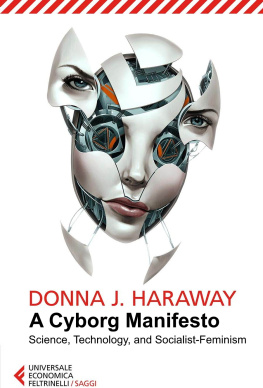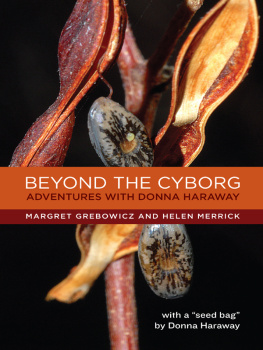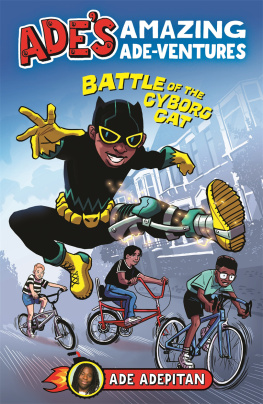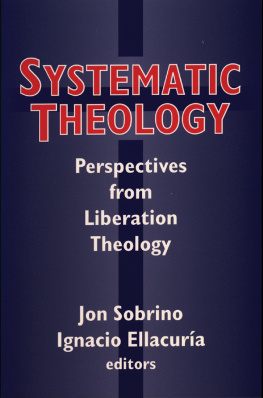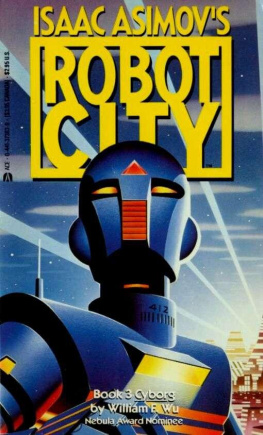Midson - Cyborg theology: humans, technology and God
Here you can read online Midson - Cyborg theology: humans, technology and God full text of the book (entire story) in english for free. Download pdf and epub, get meaning, cover and reviews about this ebook. City: London;New York, year: 2018, publisher: I.B.Tauris;Tauris Academic Studies, genre: Romance novel. Description of the work, (preface) as well as reviews are available. Best literature library LitArk.com created for fans of good reading and offers a wide selection of genres:
Romance novel
Science fiction
Adventure
Detective
Science
History
Home and family
Prose
Art
Politics
Computer
Non-fiction
Religion
Business
Children
Humor
Choose a favorite category and find really read worthwhile books. Enjoy immersion in the world of imagination, feel the emotions of the characters or learn something new for yourself, make an fascinating discovery.
- Book:Cyborg theology: humans, technology and God
- Author:
- Publisher:I.B.Tauris;Tauris Academic Studies
- Genre:
- Year:2018
- City:London;New York
- Rating:4 / 5
- Favourites:Add to favourites
- Your mark:
- 80
- 1
- 2
- 3
- 4
- 5
Cyborg theology: humans, technology and God: summary, description and annotation
We offer to read an annotation, description, summary or preface (depends on what the author of the book "Cyborg theology: humans, technology and God" wrote himself). If you haven't found the necessary information about the book — write in the comments, we will try to find it.
Midson: author's other books
Who wrote Cyborg theology: humans, technology and God? Find out the surname, the name of the author of the book and a list of all author's works by series.
Cyborg theology: humans, technology and God — read online for free the complete book (whole text) full work
Below is the text of the book, divided by pages. System saving the place of the last page read, allows you to conveniently read the book "Cyborg theology: humans, technology and God" online for free, without having to search again every time where you left off. Put a bookmark, and you can go to the page where you finished reading at any time.
Font size:
Interval:
Bookmark:

Scott A. Midson is Postdoctoral Research Associate at the Lincoln Theological Institute, University of Manchester, where he obtained his PhD in 2016. Specialising in religion and technology, and religion and posthumanism, he is a member of the Society for the Study of Theology, where he delivered a paper in 2016 on the topic of Black Mirrors. Cyborg Theology is his first book.
Scott Midson's book will encourage readers to reflect not just on the impact of advanced technologies on their everyday lives, but also on the deeper questions about what it means to be human in a world of hybrid beings and fluid boundaries.
Elaine L. Graham, Grosvenor Research Professor of Practical Theology, University of Chester, author of Representations of the Post/Human: Monsters, Aliens and Others in Popular Culture
Scott Midson's book blazes a new path for theology in its pursuit of the trans- and posthuman. This is cutting-edge work that we need to start to include in our academic curricula. It speaks powerfully to the world we inhabit.
Graham Ward, Regius Professor of Divinity, University of Oxford
Utilising the concept of the cyborg, Midson brilliantly explores the shifting boundaries and coupling relationships between human and machine. The result is a tour de force. Midson's is a new and compelling voice on the theological scene.
Peter Scott, Samuel Ferguson Professor of Applied Theology and Director of the Lincoln Theological Institute, University of Manchester
CYBORG
THEOLOGY
Humans, Technology and God
S COTT A. M IDSON

Published in 2018 by
I.B.Tauris & Co. Ltd
London New York
www.ibtauris.com
Copyright 2018 Scott A. Midson
The right of Scott A. Midson to be identified as the author of this work has been asserted by the author in accordance with the Copyright, Designs and Patents Act 1988.
All rights reserved. Except for brief quotations in a review, this book, or any part thereof, may not be reproduced, stored in or introduced into a retrieval system, or transmitted, in any form or by any means, electronic, mechanical, photocopying, recording or otherwise, without the prior written permission of the publisher.
References to websites were correct at the time of writing.
Library of Modern Religion 56
ISBN: 978 1 78453 787 6
eISBN: 978 1 78672 295 9
ePDF: 978 1 78673 295 8
A full CIP record for this book is available from the British Library
A full CIP record is available from the Library of Congress
Library of Congress Catalog Card Number: available
For Margaret and Murray Midson
Contents
List of Figures
Venn diagram to express the interrelationship between humans, nature and technology
Venn diagram to show the interrelationship between humans, nature and technology in the broad field of posthumanism
Venn diagram to show humantechnology dynamics in different expressions and understandings of cyborg figures
Diagram to show the cyborgian interrelationship between humans and technologies as fusions and confusions
Acknowledgements
No cyborg acts alone: that is the message that is at the forefront of this book. And so, it is fitting to open by acknowledging some of the people without whom this book would not have come together, and to whom I extend a deep and sincere thank you.
This book began as a PhD thesis undertaken at the University of Manchester (201215), which was supported by the Arts & Humanities Research Council (AHRC) and a President's Doctoral Scholarship (PDS). The wisdom and guidance of my supervisory team (Susannah Cornwall, Kaye Mitchell, Chris Shannahan, and Peter Scott) during this time is hopefully (!) still preserved in these pages, and I thank them wholeheartedly for their inputs. I also thank Sigurd Bergmann and Michael Hoelzl for their invaluable advice about making the transition from thesis to manuscript. There are many, many more names to cover that span this period far too many to list here unfortunately but the communities of the Graduate School (of the School of Arts, Languages and Cultures), the Lincoln Theological Institute and the Department of Religions and Theology have been particularly supportive of this research. I have also had the privilege of teaching at the University of Chester while preparing this book, and colleagues in the department of Theology and Religious Studies were encouraging and helpful. It has been a pleasure to write the book as part of these communities, working among inspiring researchers.
I also thank Dympna Gould and Canon David Holgate of Manchester Cathedral for the invitation to present some of my work on cyborgs and theology as part of Manchester Science Week 2016. Albert Radcliffe and his congregations at St Chad's Church, Withington, also extended a kind and generous invite to present at and participate in their fantastic Religion and Science seminars. Audiences here and at conferences where I have discussed, and had the opportunity to develop, some of my chapters have provided invaluable feedback as well as a list of sci-fi recommendations that I'm still only scratching the surface of.
Additional thanks go to Emma Britain and Sonja Bernhard and the Widening Participation and Schools Outreach teams of the Faculty of Humanities at the University of Manchester, as well as teachers and pupils of the classes that I have had the pleasure of talking all things technological and posthuman with. I appreciated classes' lively responses and comments, which ranged from asking how we can distinguish humans from God, to designing soft and huggable robots; and from exploring whether we are posthuman, to having a heated discussion about whether Beyonc is a cyborg. I also thank students of Theological Studies in Philosophy and Ethics at the University of Manchester, whose responses to my lectures on matters of theological anthropology and human and nonhuman ethics have inspired me to take my work in further new and exciting directions.
I have been particularly fortunate to have had the love and support of friends throughout the book-writing process: they have helped to celebrate successes and to rebound from less-than-successes; usually with both involving copious amounts of cake. I wholeheartedly here thank, among others, Katie Zakis, Naomi Billingsley, Esther Webb (and Grace Church, Manchester), Miri Jakel, Johannes Lotze, Kate Crouch, Dorian Campbell, Jenni Jackson, Alison Jackson, Kayla Hillier, Anna Vickerstaff, Rosie Edgley and Chloe Thornton. Particular thanks also go to Katharina Keim, who has patiently and enthusiastically passed on advice and encouragement, and Tim Tams, and who has spurred me on throughout the highs and lows of balancing writing and life. I also thank James Grant for putting up with my cyborgian (and omniborgian) ramblings, and for offering much appreciated support that has enriched the writing process, and that I hope has in turn enriched my arguments and their articulation here.
My biggest thank you and acknowledgements in putting this book together go firstly to Alex Wright, Sara Magness and the team at I.B.Tauris for taking an initial and sustained interest in my research, and for making my first-time publishing process so enjoyable. Secondly, to Peter Scott, who has guided and helped to develop my ideas, and from whom I continue to learn much about theology and its role in the contemporary academy and world. Through detailed conversations with Peter during my academic journey in Manchester, I have been able to continually refine and sharpen my critique about cyborgs and my awareness of theological tools, and I am very thankful and grateful for his shared expertise and valuable inputs.
Next pageFont size:
Interval:
Bookmark:
Similar books «Cyborg theology: humans, technology and God»
Look at similar books to Cyborg theology: humans, technology and God. We have selected literature similar in name and meaning in the hope of providing readers with more options to find new, interesting, not yet read works.
Discussion, reviews of the book Cyborg theology: humans, technology and God and just readers' own opinions. Leave your comments, write what you think about the work, its meaning or the main characters. Specify what exactly you liked and what you didn't like, and why you think so.

